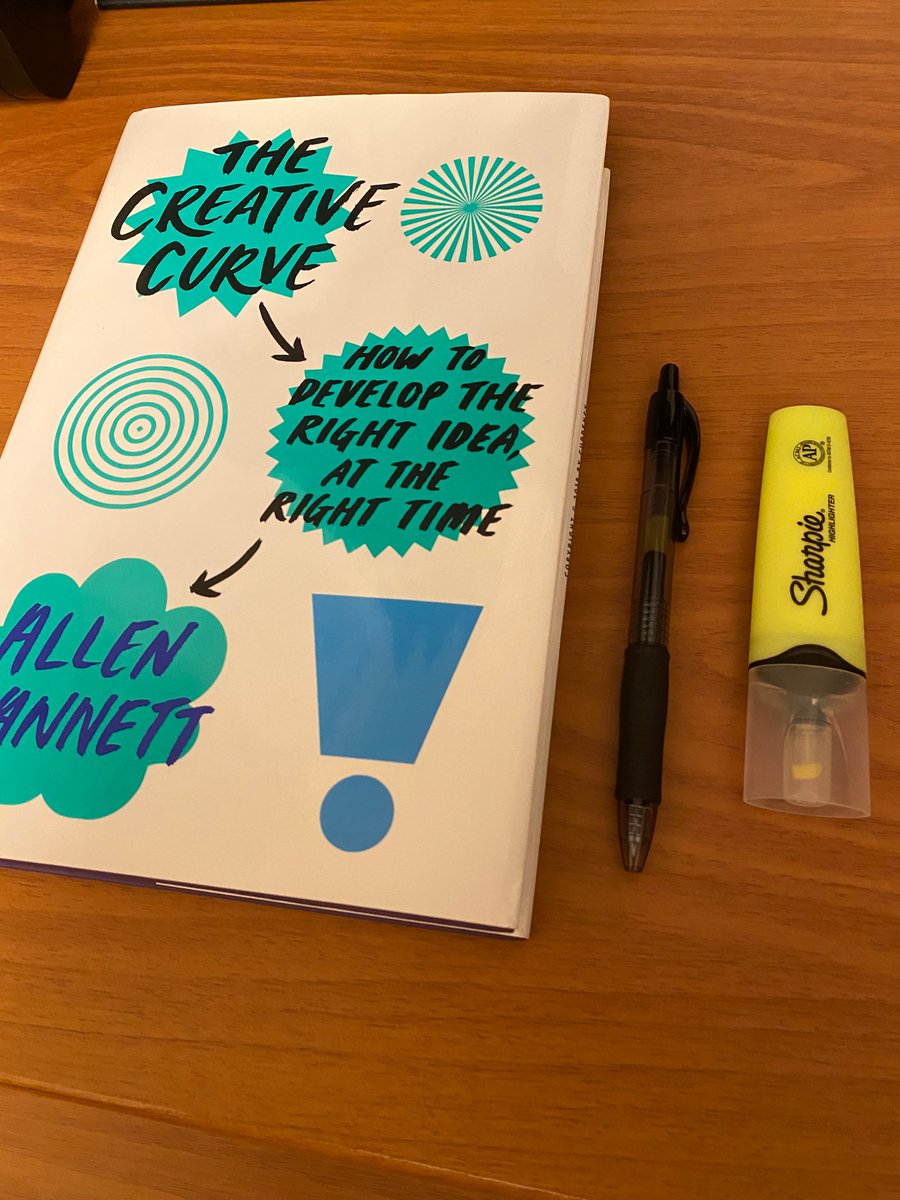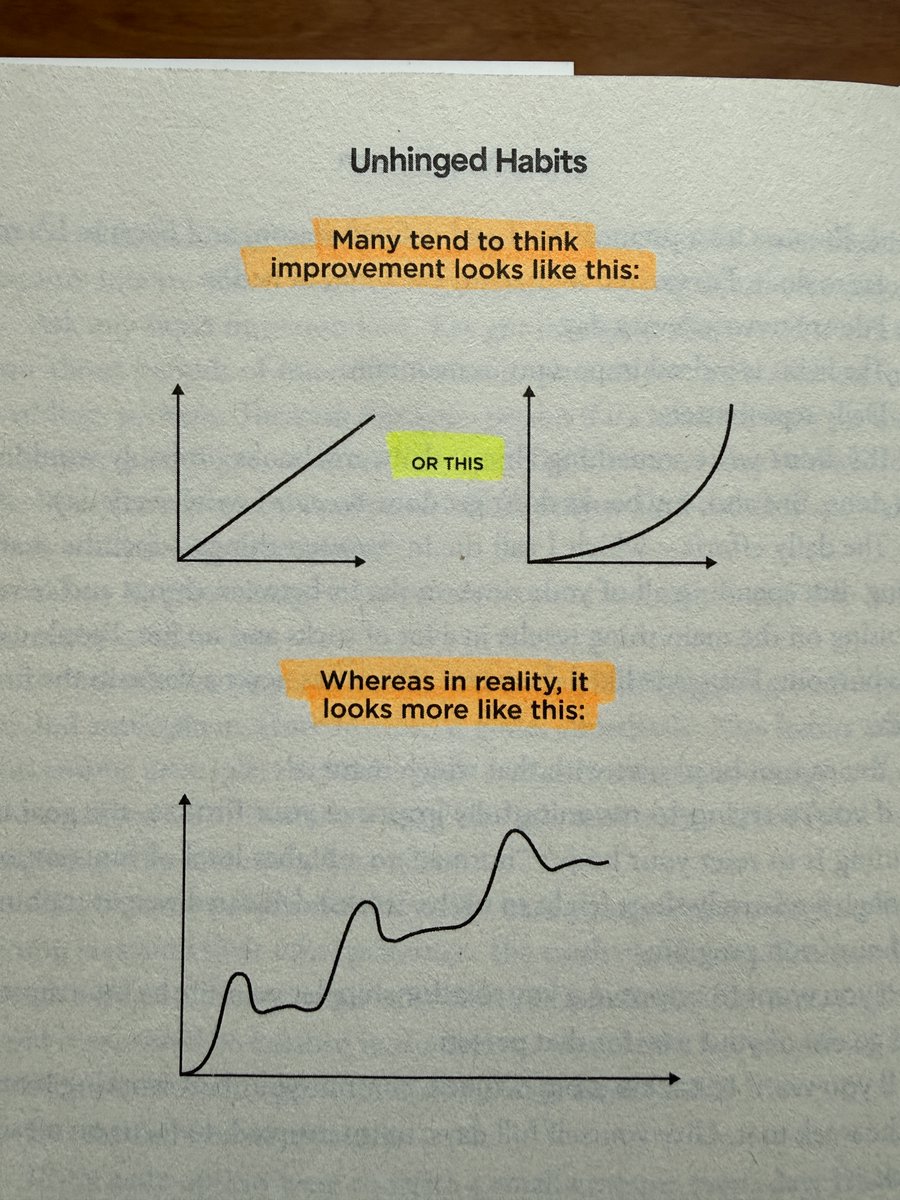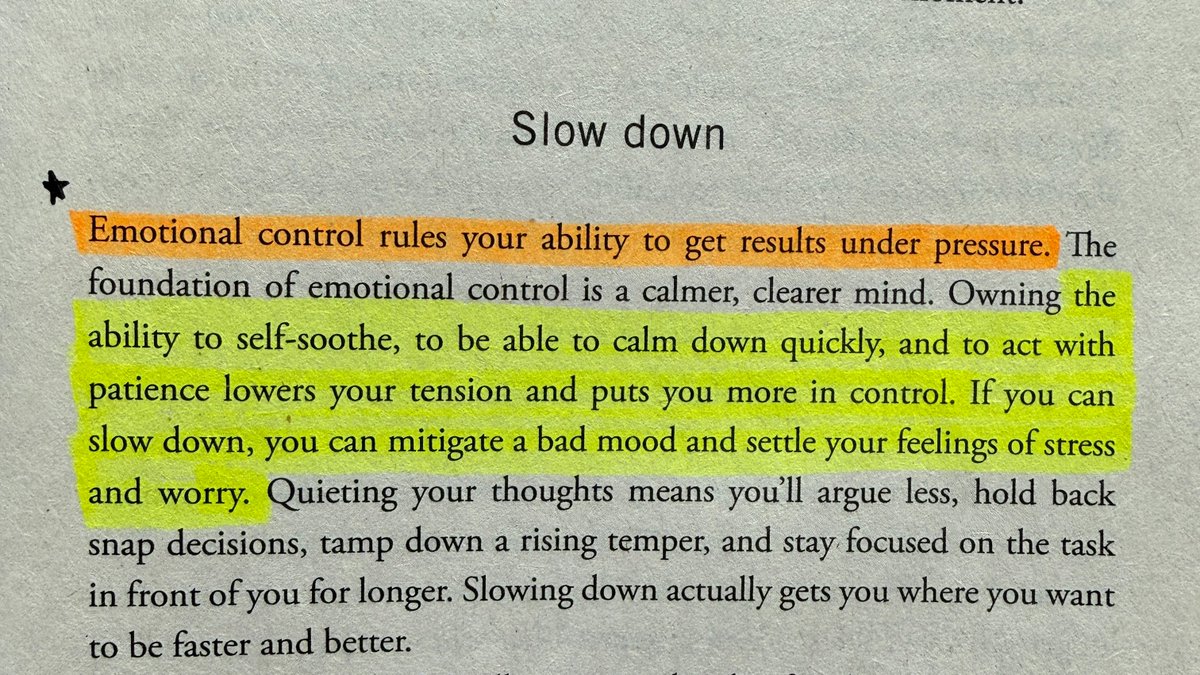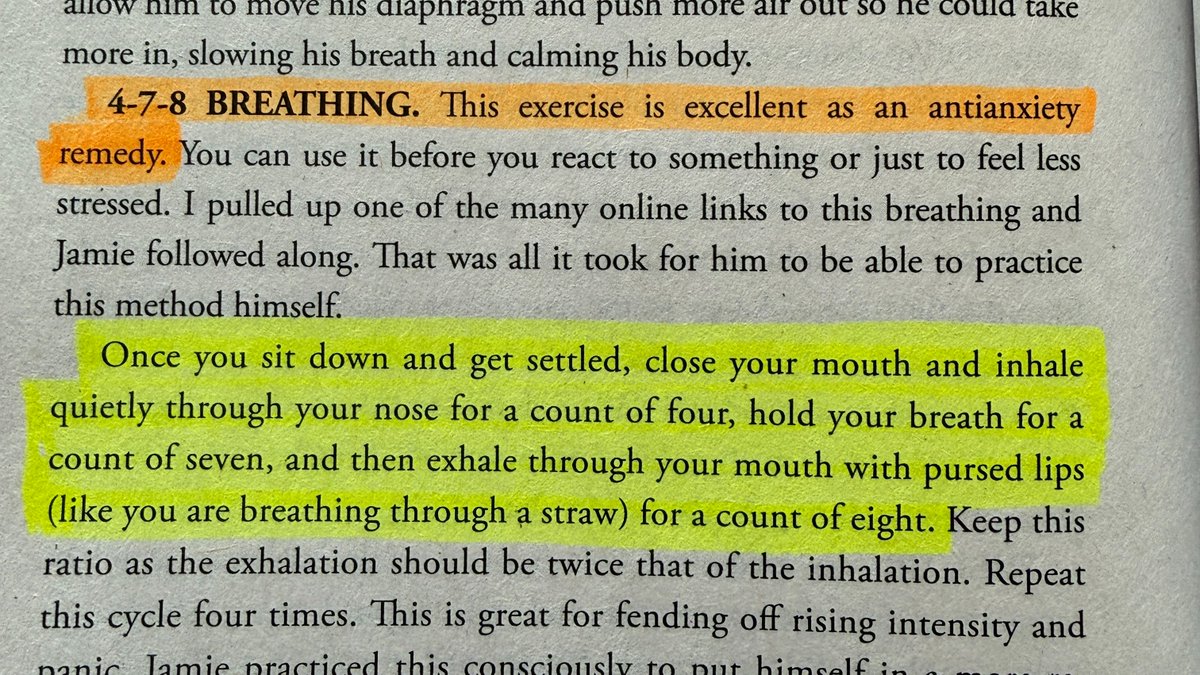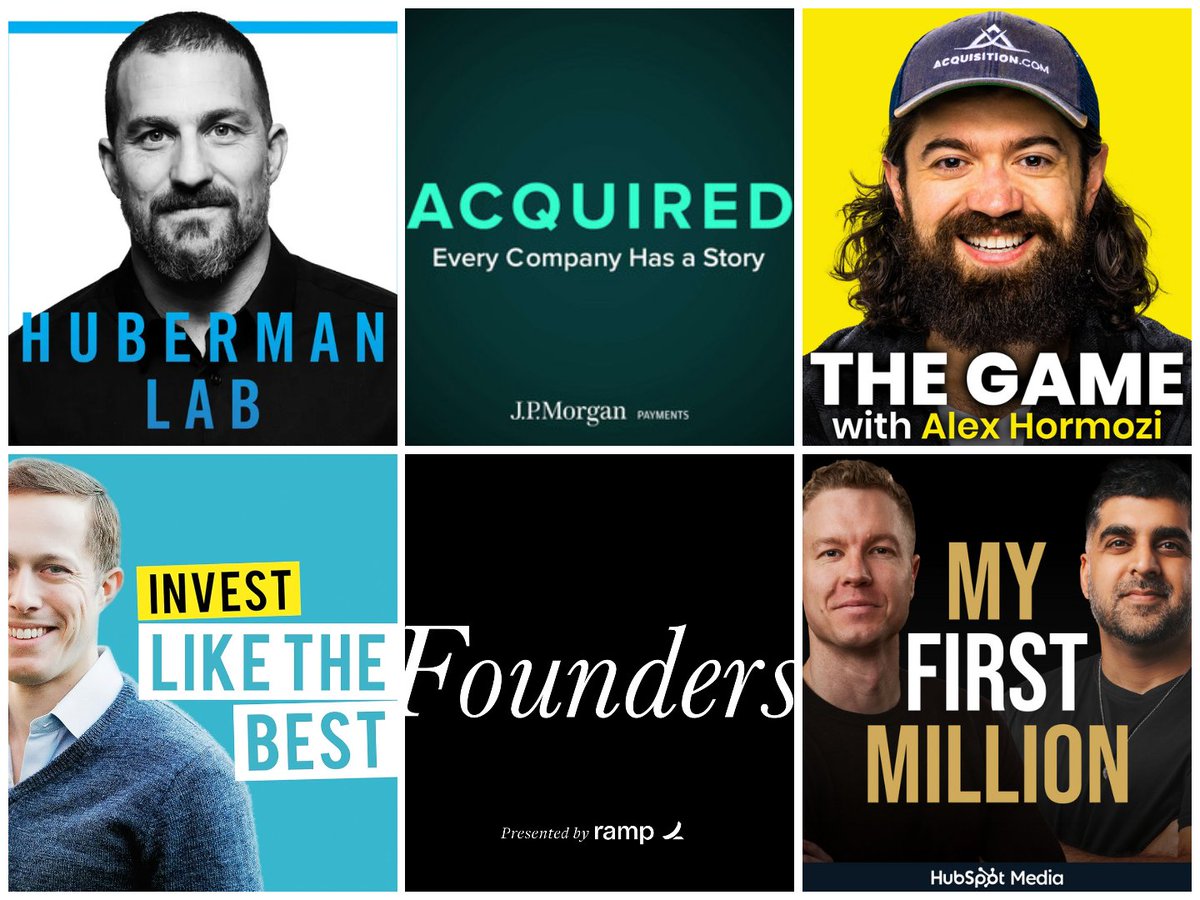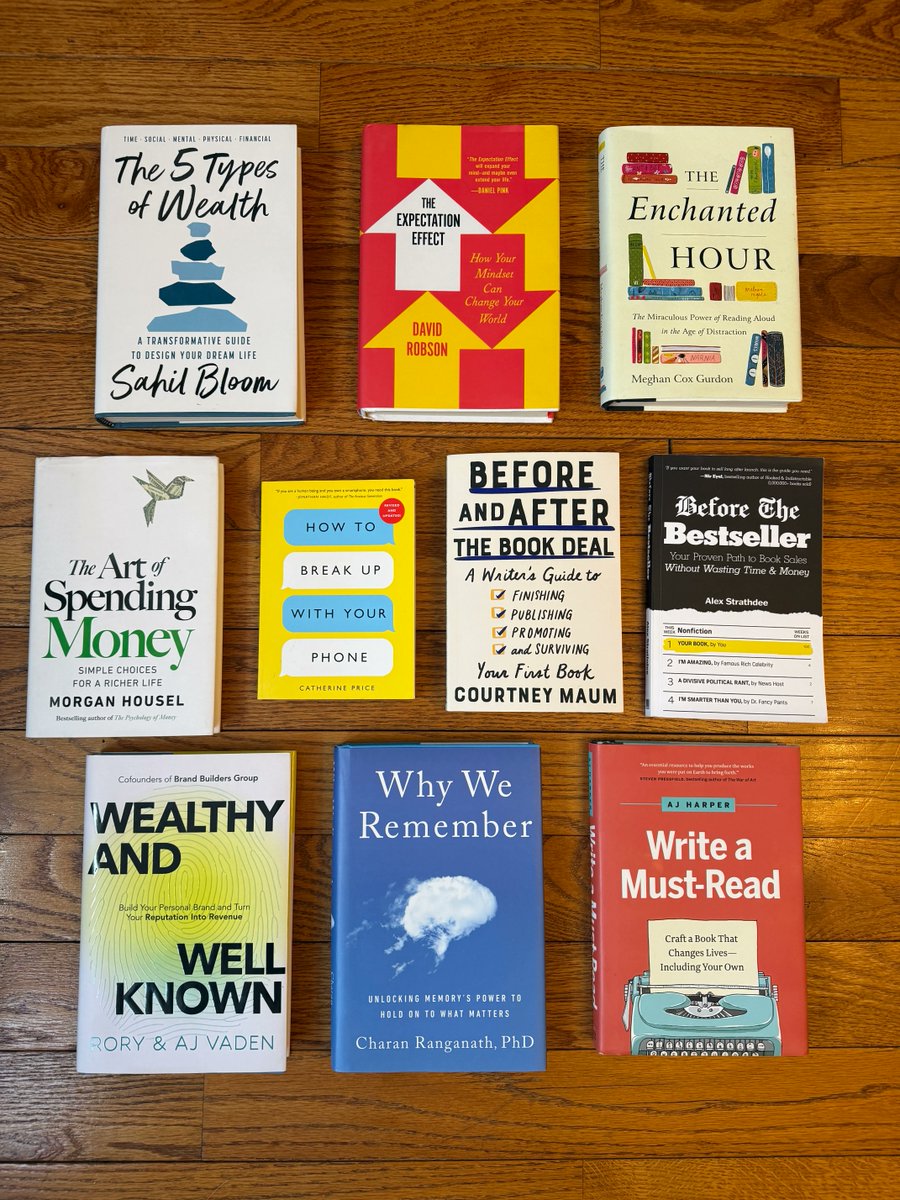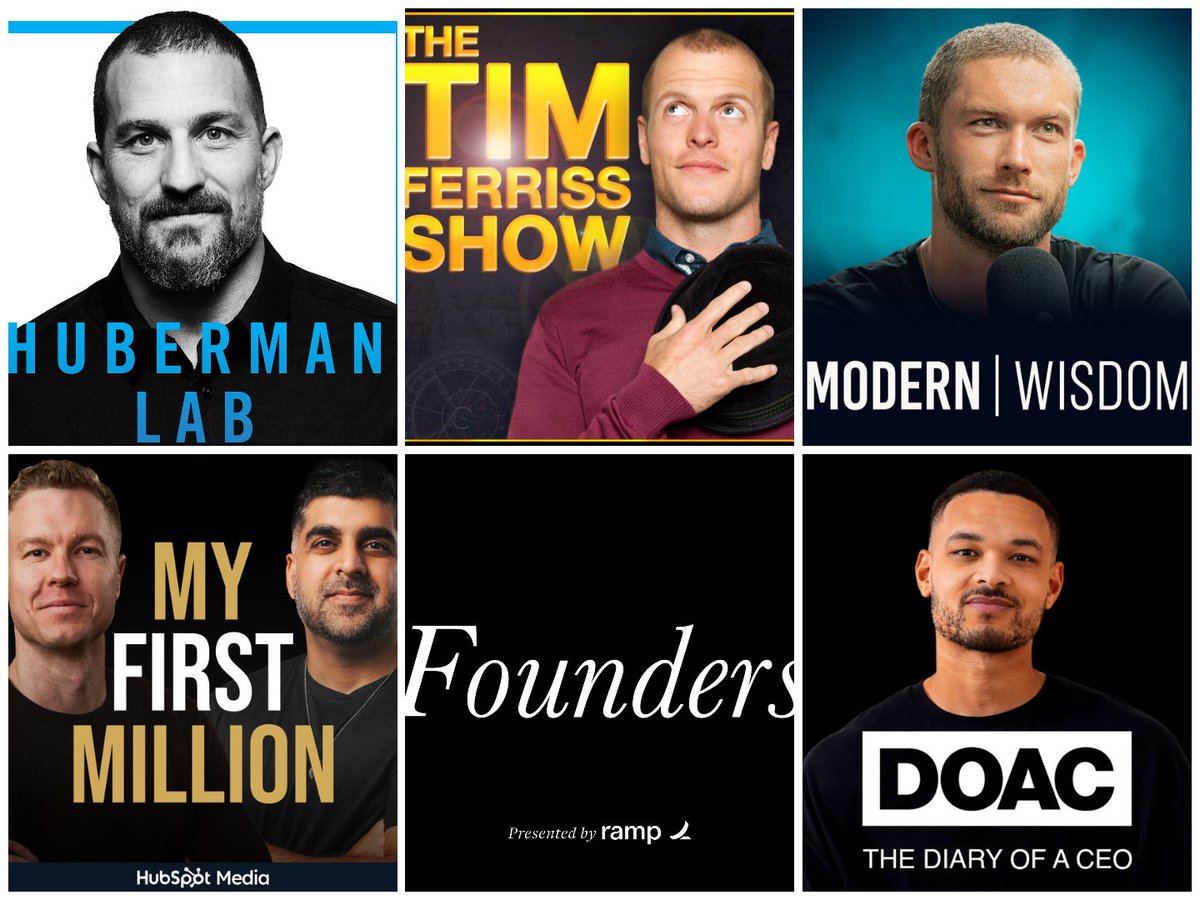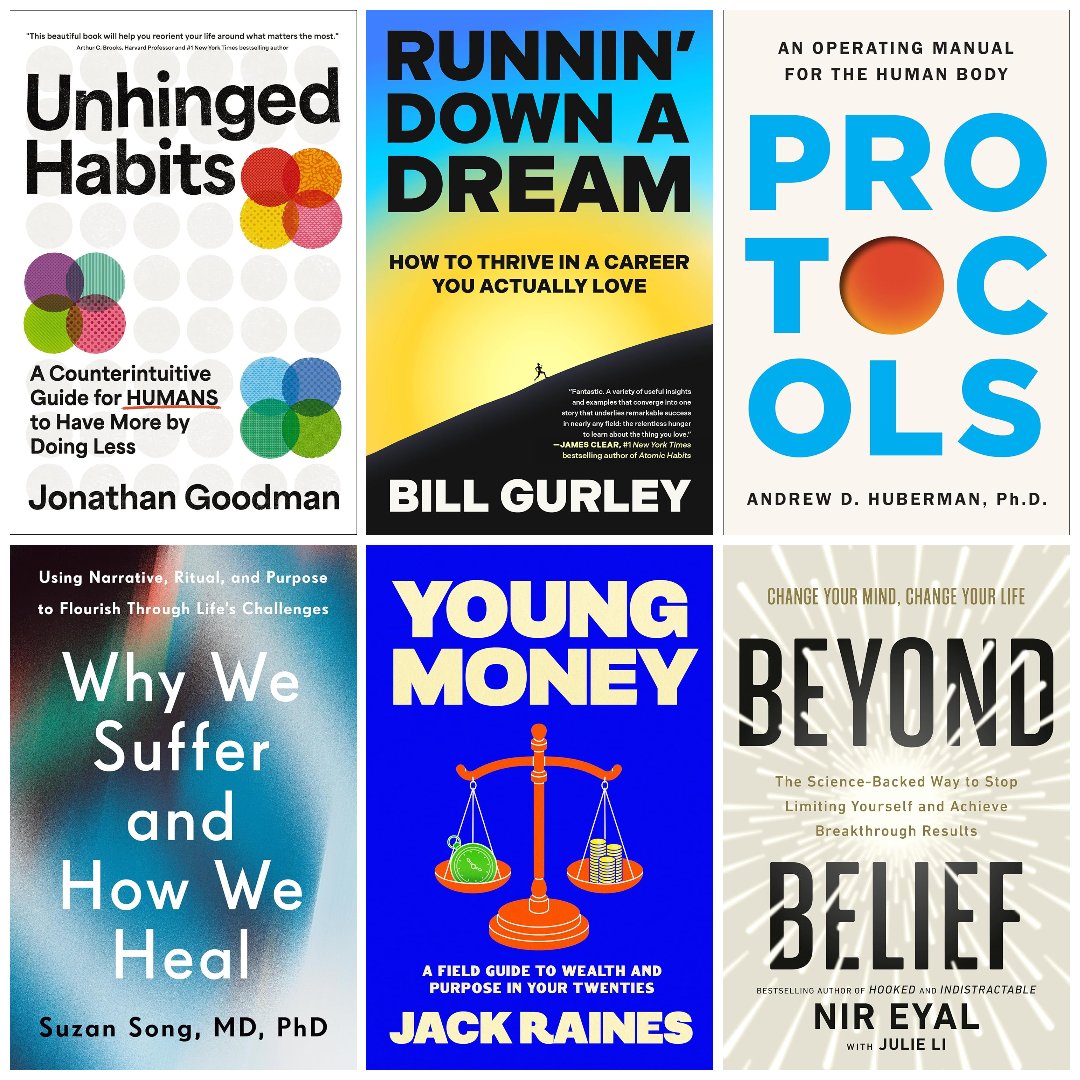A simple guide to taking notes while reading.
(thread) 🧵
(thread) 🧵
1) Write your name & the date on the inside of the front cover.
If you ever forget or mix up books, you’ll know which is yours.
The date serves as a type of journal entry in your life and can tell you how long it took to read the book.
If you ever forget or mix up books, you’ll know which is yours.
The date serves as a type of journal entry in your life and can tell you how long it took to read the book.
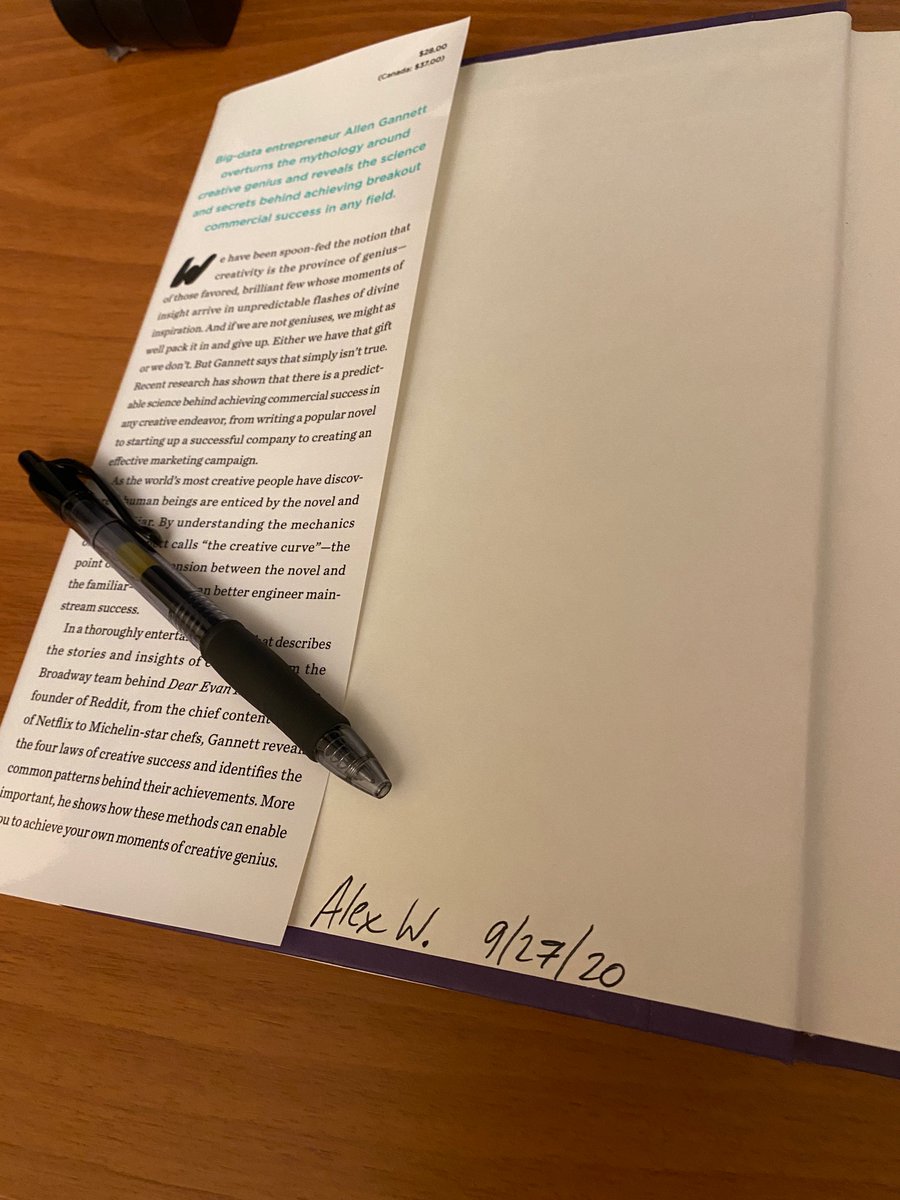
2) As you read, highlight passages that resonate with you
This could be text you want to review later, include in future articles, makes you stop to think, etc.
(PS: I recommend the clear Sharpie highlighter, it’s wide so it gets the whole line & it’s comfortable to hold)
This could be text you want to review later, include in future articles, makes you stop to think, etc.
(PS: I recommend the clear Sharpie highlighter, it’s wide so it gets the whole line & it’s comfortable to hold)
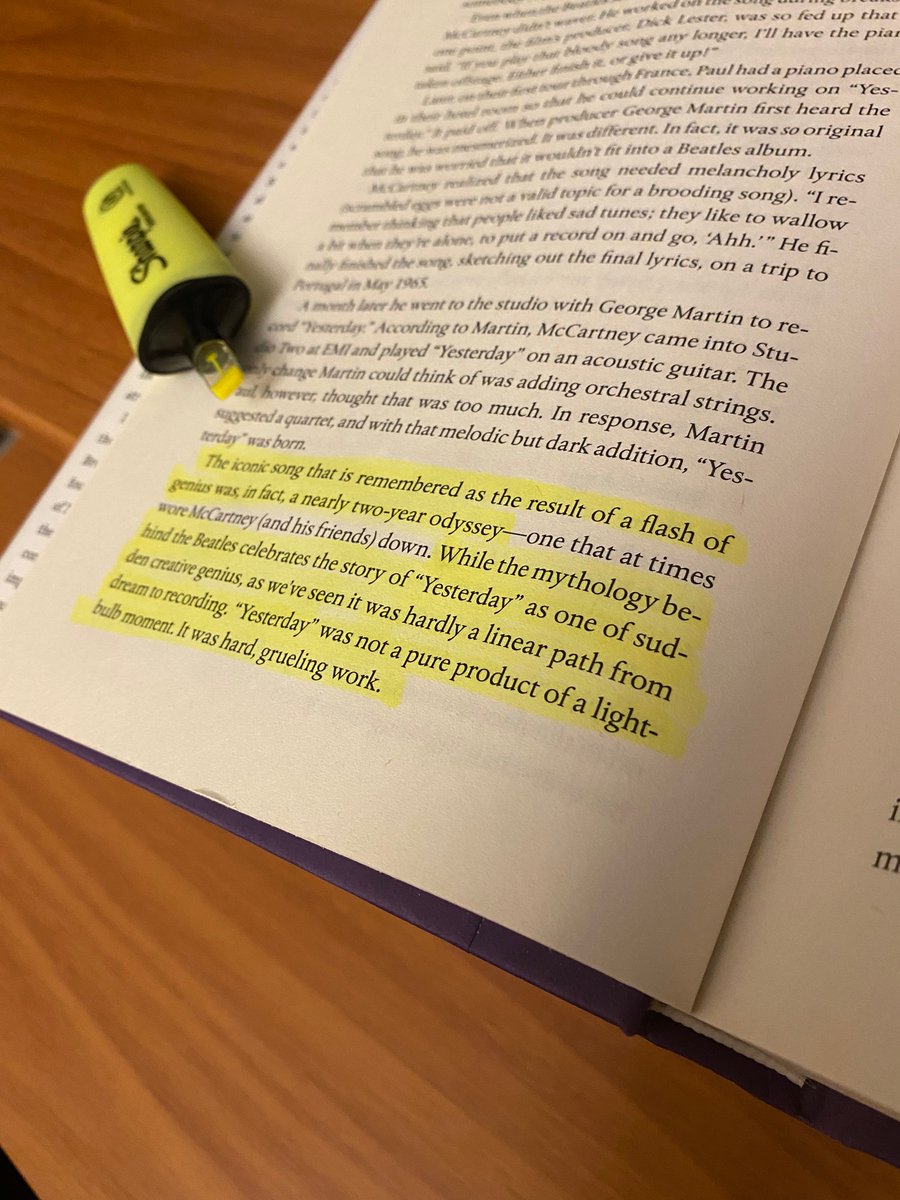
3) Write in the margins & star important text
Remember that this is your book and you’re allowed to write in it.
When a text is super important, highlight it & add a star next to it.
Remember that this is your book and you’re allowed to write in it.
When a text is super important, highlight it & add a star next to it.
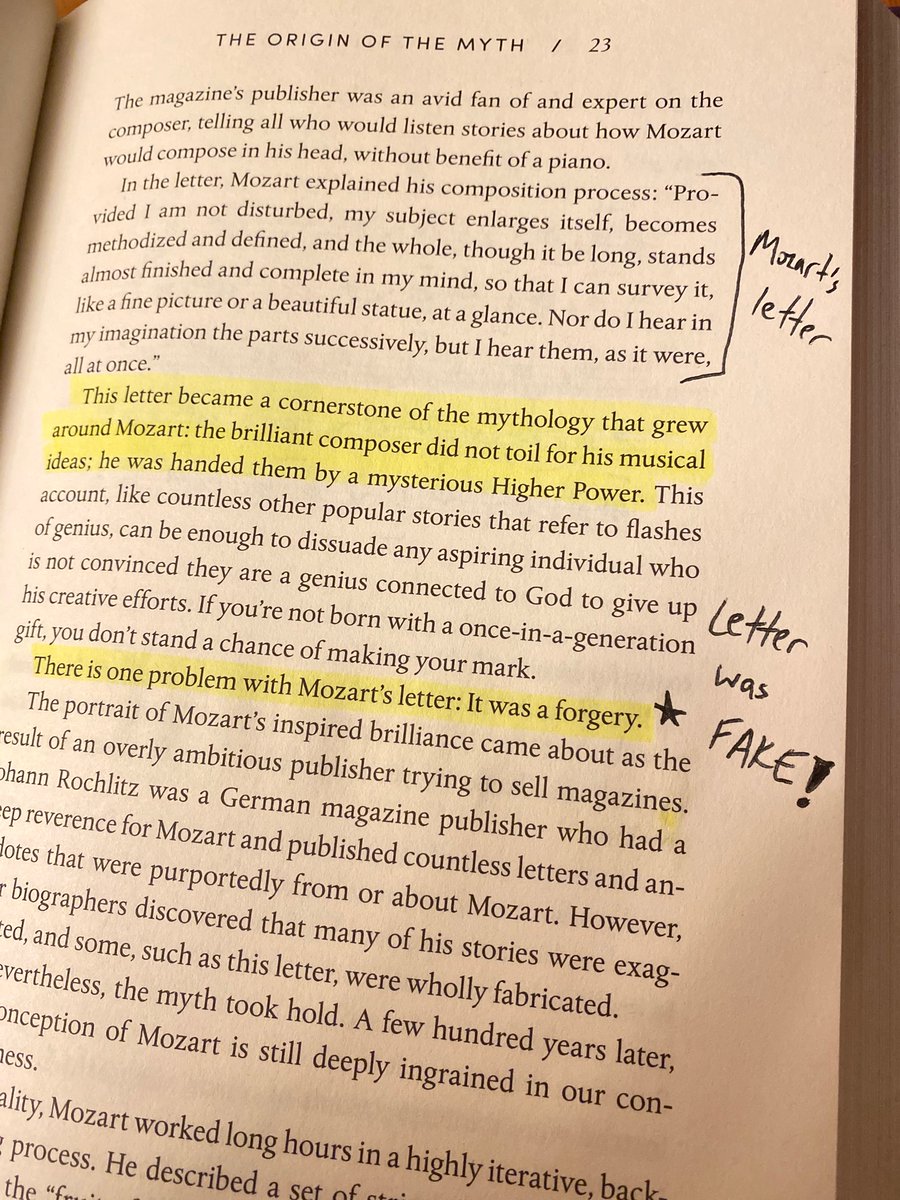
4) Create your own table of contents
Once you highlight a passage, go back to the inside of the front cover and jot the page # and a few words describing the text.
If you put a star next to a highlighted passage, put a star next to it in your table of contents as well.
Once you highlight a passage, go back to the inside of the front cover and jot the page # and a few words describing the text.
If you put a star next to a highlighted passage, put a star next to it in your table of contents as well.
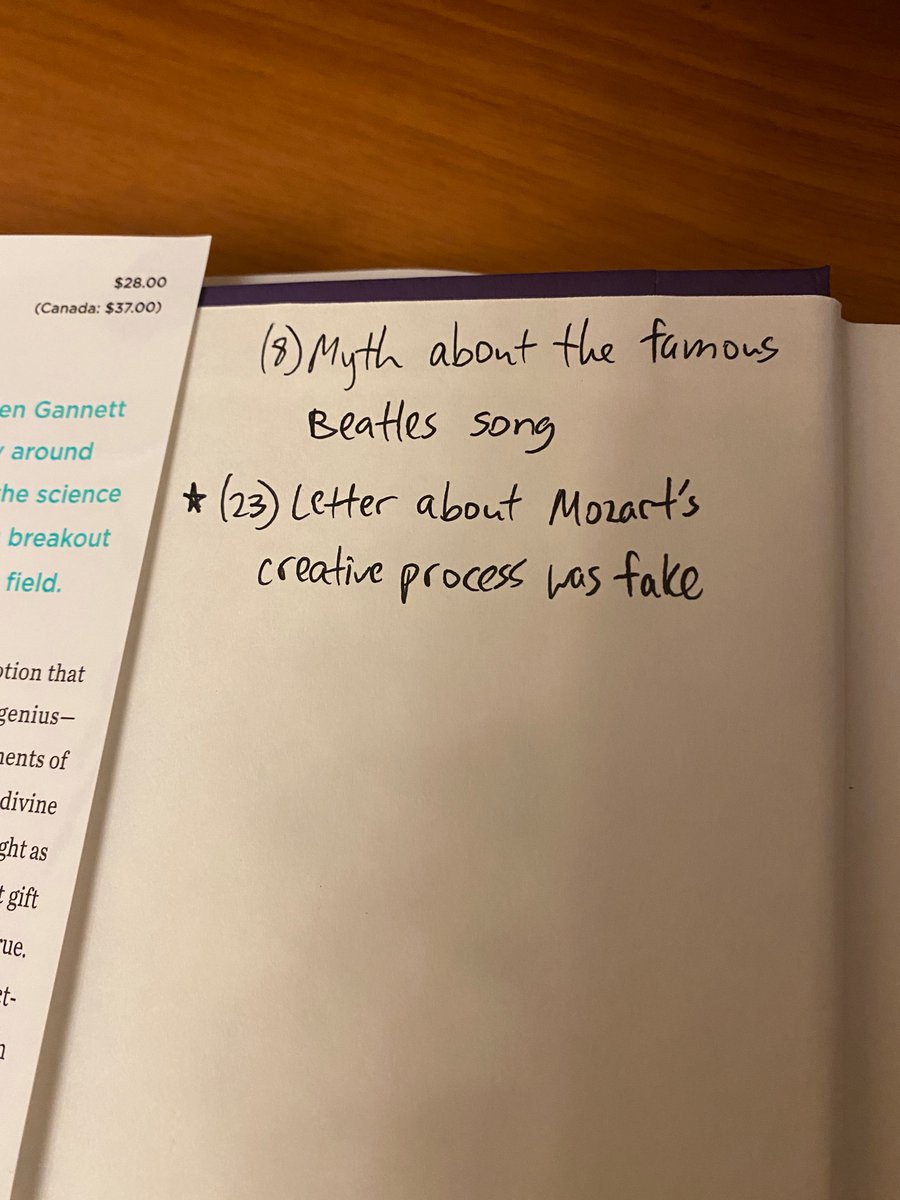
5) At the end of every chapter write down 2-3 key takeaways
This way you aren’t just reading & highlighting passages, but rather you’re actively recalling what you’ve learned. These takeaways will come in handy later as well.
This way you aren’t just reading & highlighting passages, but rather you’re actively recalling what you’ve learned. These takeaways will come in handy later as well.
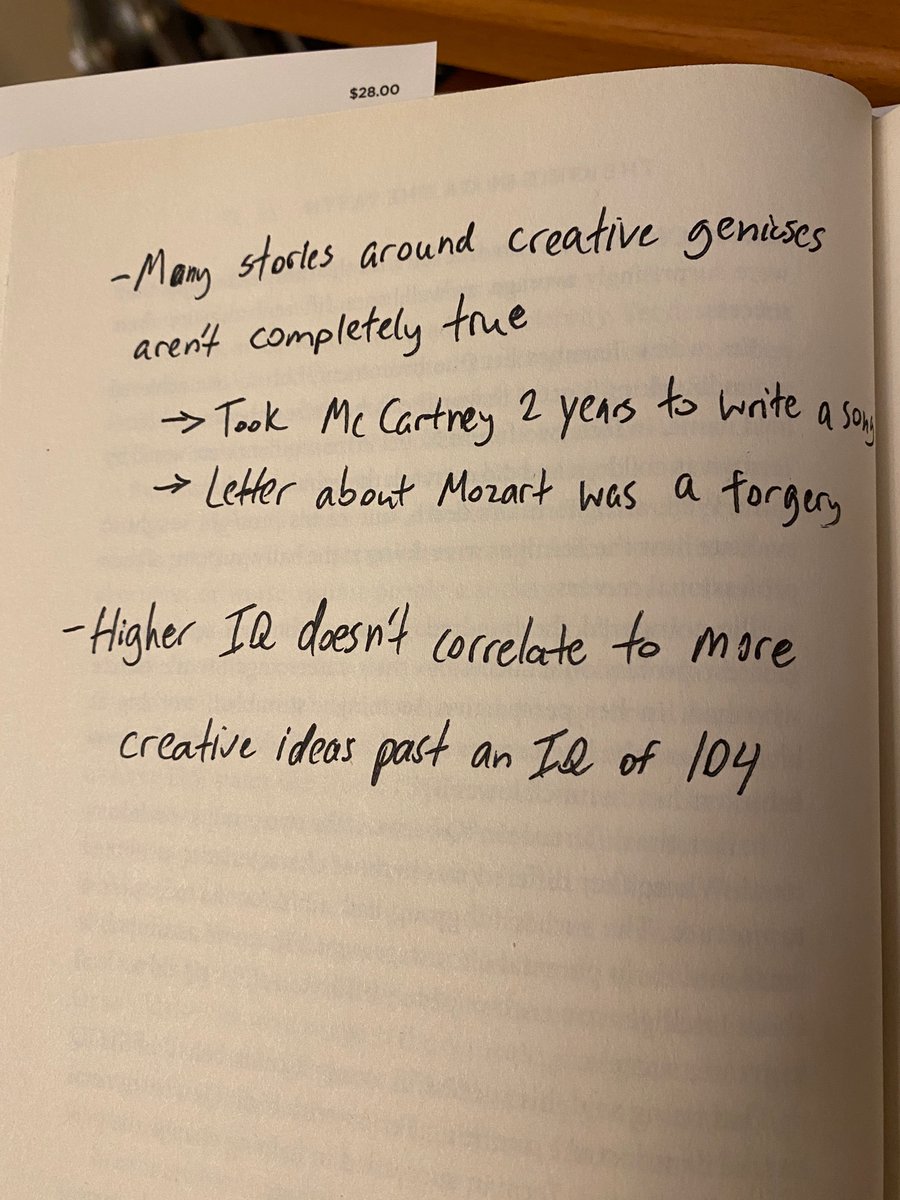
6) Review before reading
Let’s say it’s the next day.
Before you start reading again, take a few minutes to remember what you learned from your last reading session.
If you’re having trouble, review your highlights & chapter takeaways.
(tip from “Limitless” by @jimkwik)
Let’s say it’s the next day.
Before you start reading again, take a few minutes to remember what you learned from your last reading session.
If you’re having trouble, review your highlights & chapter takeaways.
(tip from “Limitless” by @jimkwik)
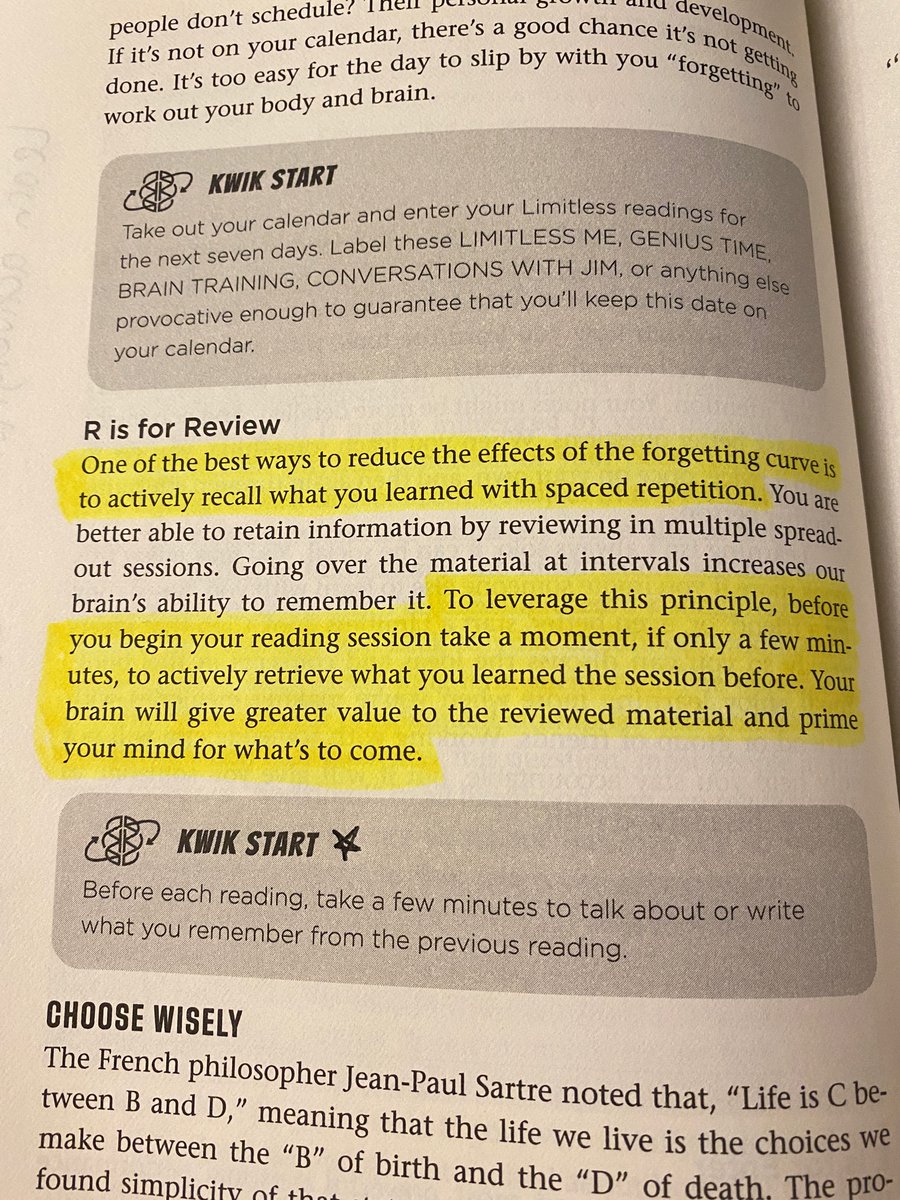
7) Repeat steps 2-6 until you finish the book
Once done you’re done with the book, your table of contents will look something like this.
Once done you’re done with the book, your table of contents will look something like this.
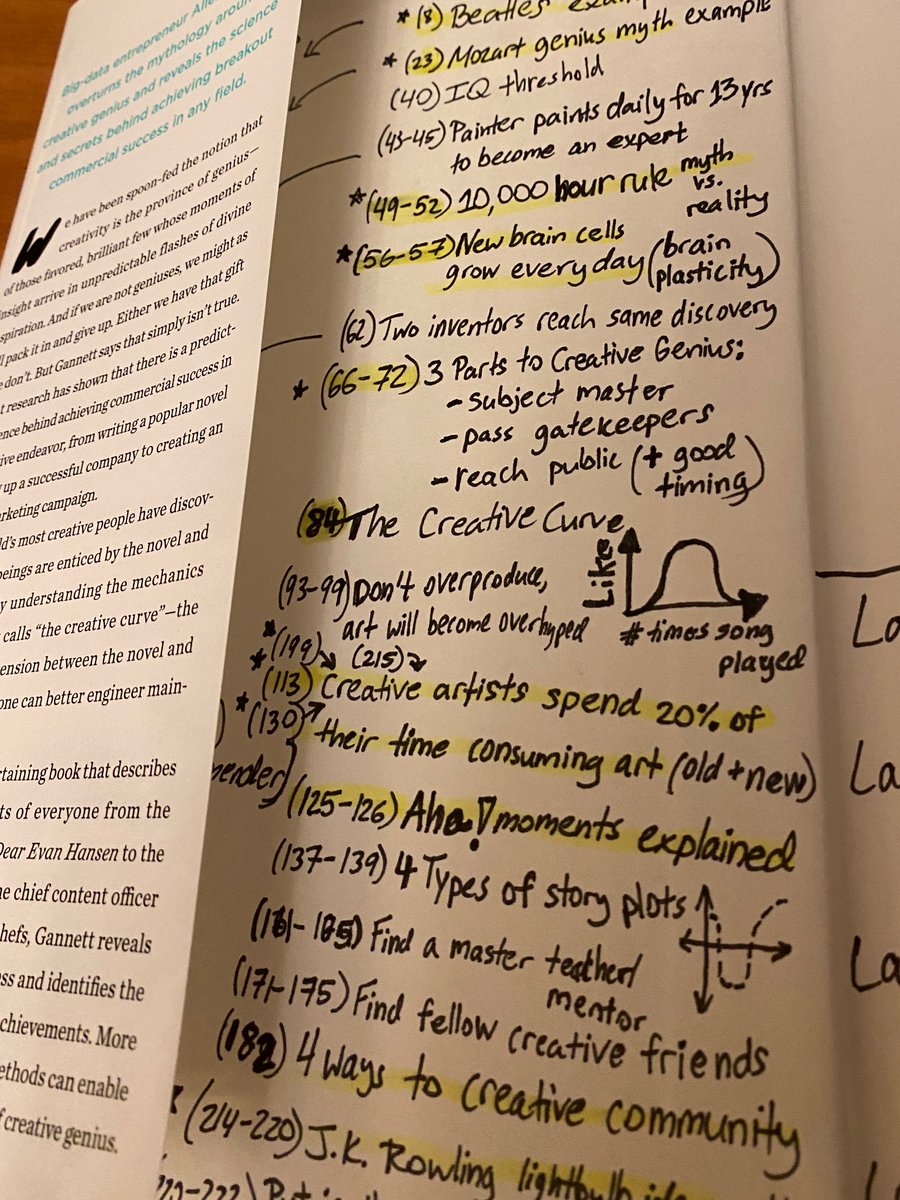
8) Date, signed, rated
On the inside of the back cover, write the date you finished the book, sign your name, & give it a rating.
On the inside of the back cover, write the date you finished the book, sign your name, & give it a rating.
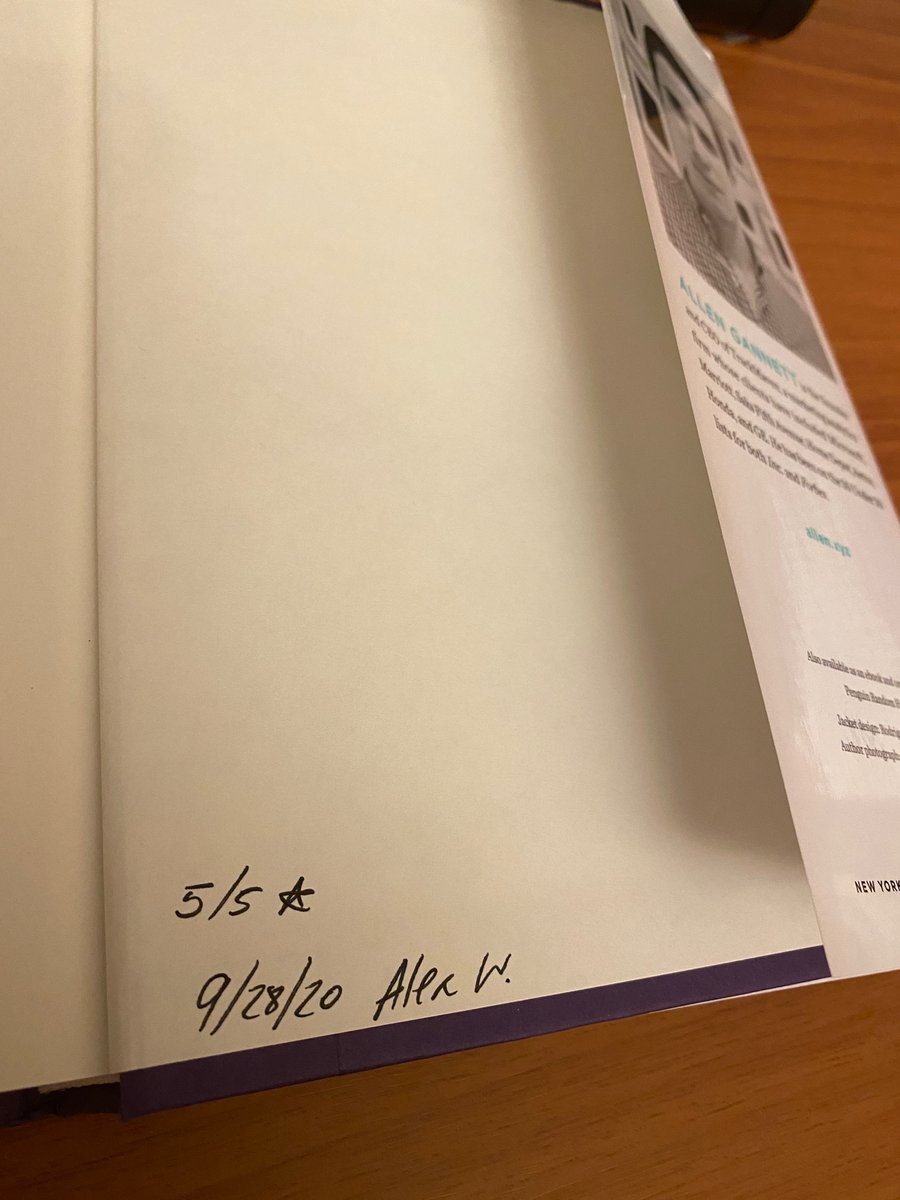
9) Final Key Takeaways
Use the left side of the back cover to write down the overall key takeaways of the book.
Go back to the chapter takeaways you wrote & pick out the ones most insightful to you.
Use the left side of the back cover to write down the overall key takeaways of the book.
Go back to the chapter takeaways you wrote & pick out the ones most insightful to you.
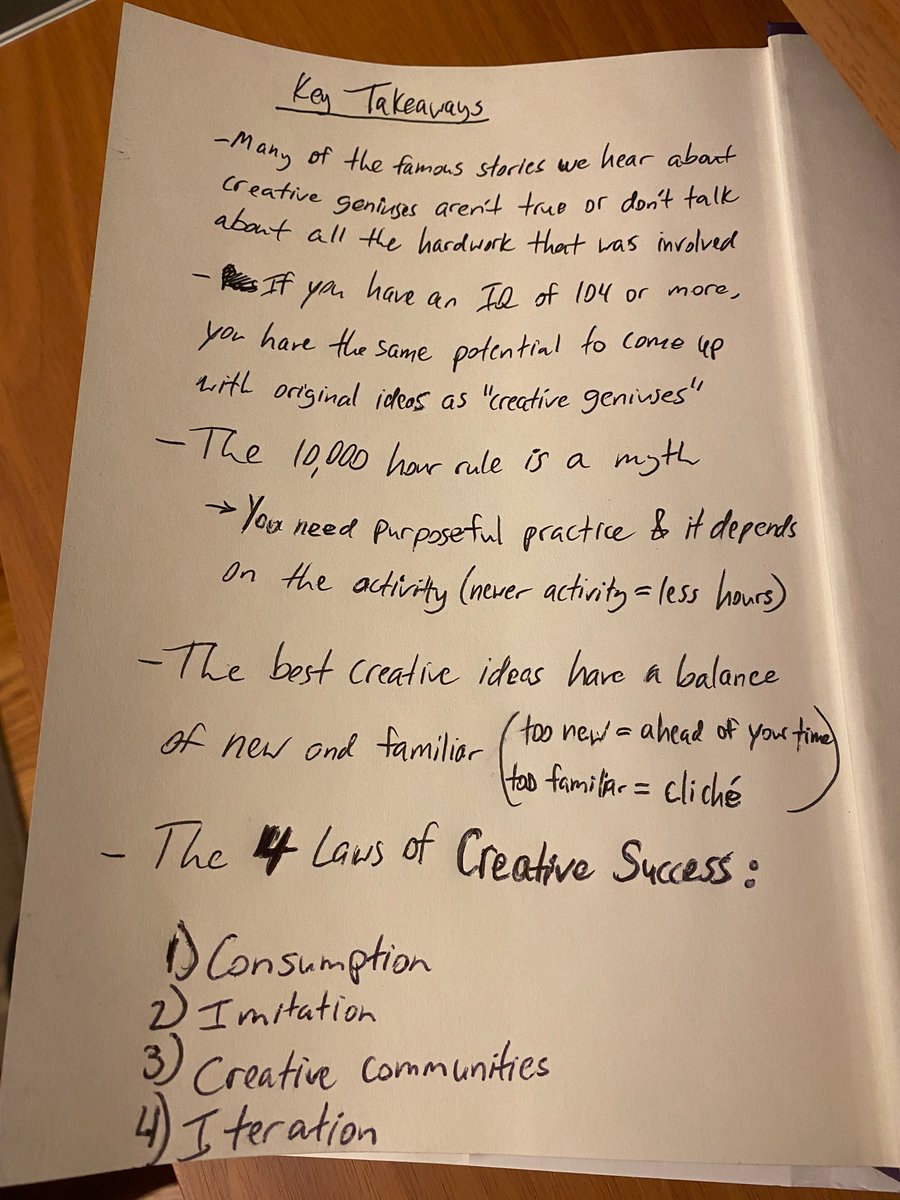
10) Actionable Advice
Knowledge is only potential power. You need to make it actionable to make a difference.
Think of ways you can apply the lessons and knowledge you learned by turning it into actionable advice on the inside of the back cover.
Knowledge is only potential power. You need to make it actionable to make a difference.
Think of ways you can apply the lessons and knowledge you learned by turning it into actionable advice on the inside of the back cover.
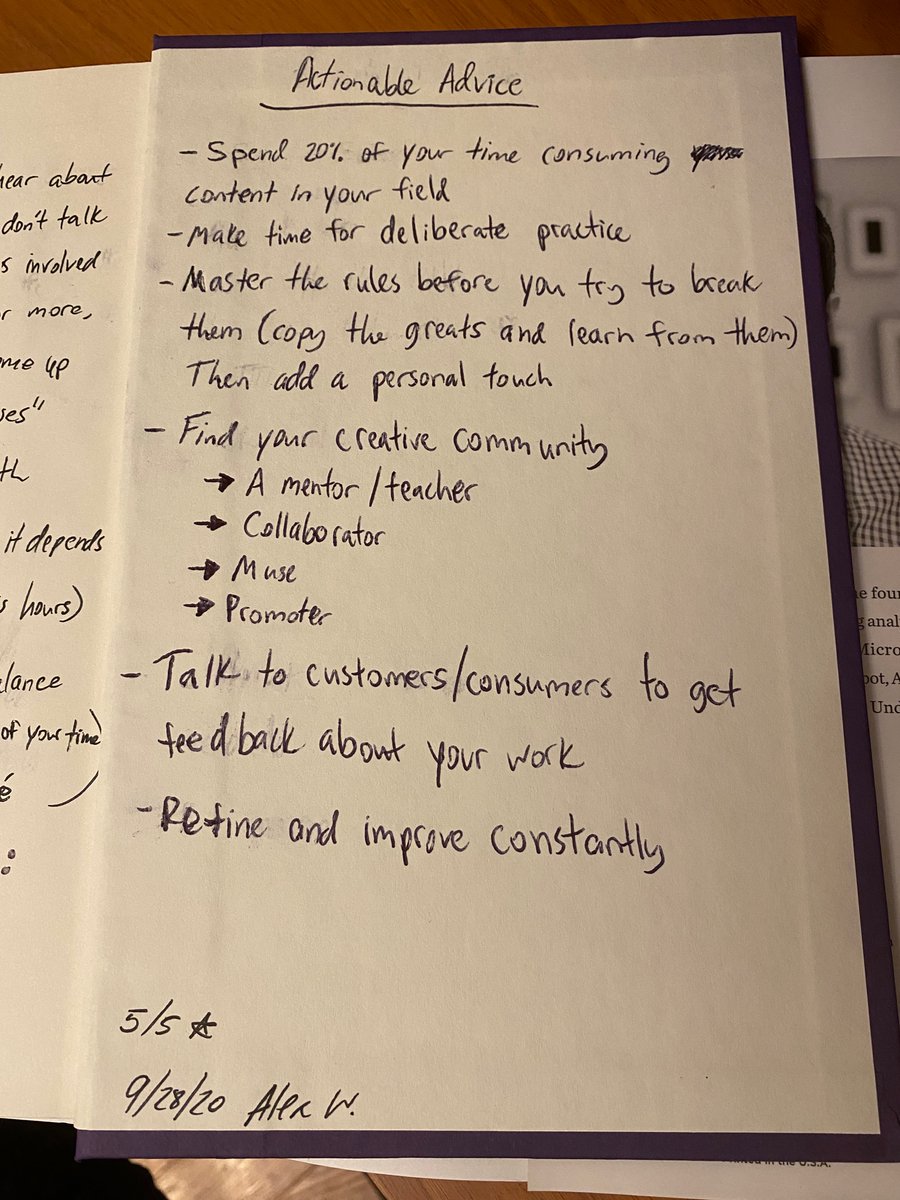
And that’s a simple guide to taking notes while reading.
There’s a more detailed version to come but in terms of the 80/20 rule, this 20% of work will give you 80% of the results.
What’s your reading & note taking process?
There’s a more detailed version to come but in terms of the 80/20 rule, this 20% of work will give you 80% of the results.
What’s your reading & note taking process?
PS: On the off chance this goes viral, the working title is A.N.T.S:
• Alex’s Note-Taking Strategy
• Alex’s Note-Taking Strategy
PPS: Every week I write a free newsletter where I share:
• The book I’m reading
• Actionable advice from it
• Reading tips & podcast updates
Consider joining 2,000+ readers here: alexandbooks.com/newsletter
• The book I’m reading
• Actionable advice from it
• Reading tips & podcast updates
Consider joining 2,000+ readers here: alexandbooks.com/newsletter
• • •
Missing some Tweet in this thread? You can try to
force a refresh

